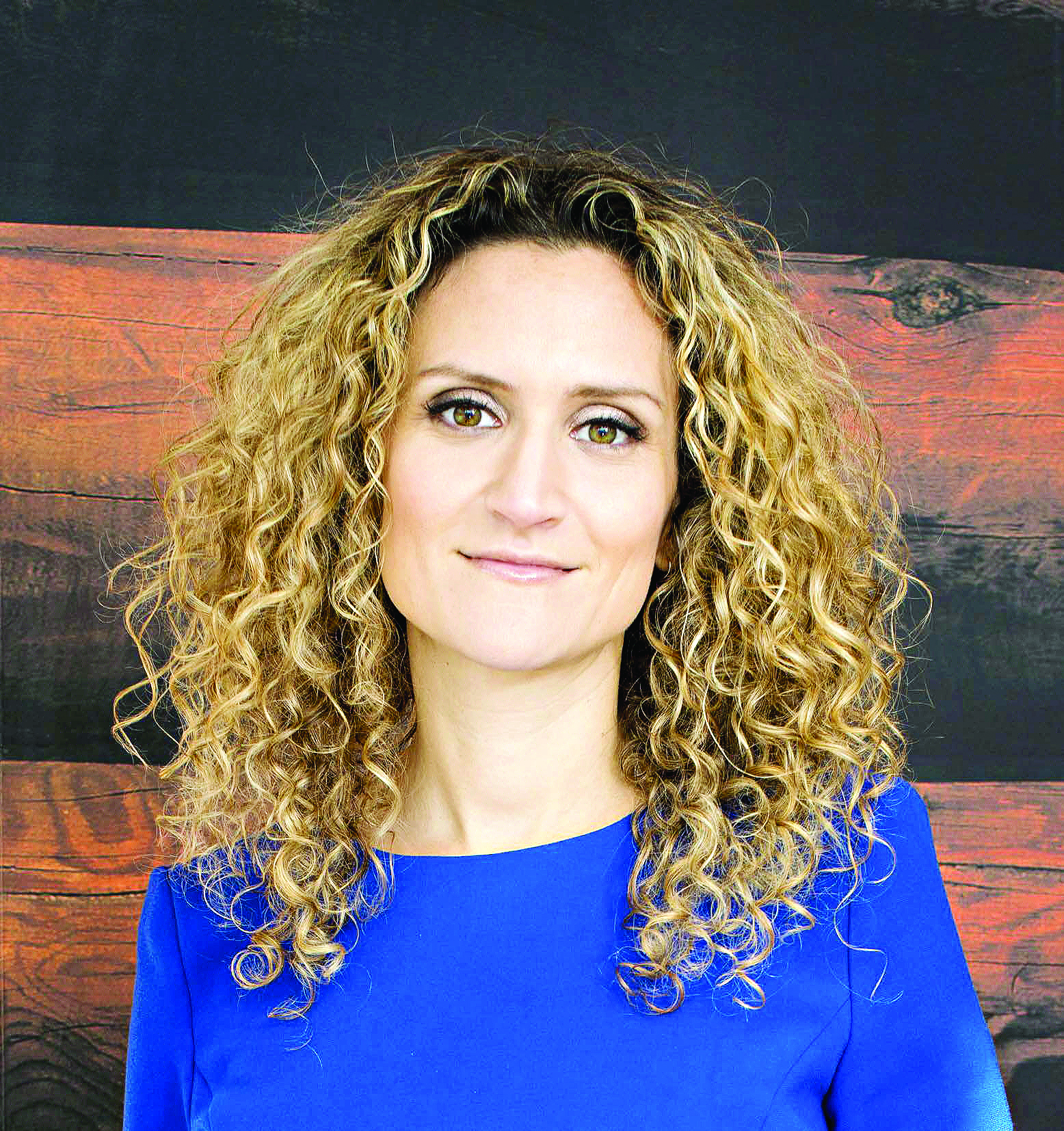Ask Dr Ellie Cannon! This week: Cervical cancer vaccine, veganism and thinning hair
Our resident doctor answers your burning medical questions...
Q The vaccine for cervical cancer has been getting bad press in recent weeks. Should I still give it to my daughter?
Yes. I talk about vaccinations a lot, because I am a huge fan of them: in my mind, they are probably one of the single most effective public health measures of the past few centuries.
Parents and families just don’t talk any more about a whole range of fatal illnesses that used to be a normal part of the vernacular.
As one example, the word polio used to summon fear in everyone, much like meningitis does now.
Get The Jewish News Daily Edition by email and never miss our top stories Free Sign Up
But I have never had to speak about polio with any of my mum-friends, for the simple reason that we no longer need to talk about it because it has become irrelevant and that is thanks to vaccination.
But the problem with the success of vaccination is that the benefits are no longer tangible to you and me: we can’t see or feel that protection. It’s a bit like clean water – we don’t notice it until the water tastes funny.
Likewise, we all prick up our ears when there are stories of vaccination side-effects or adverse events. We’re not in tune to the good news of vaccines any more; we’re a bit complacent. So we panic when there is bad news and it gets out of proportion.
Side-effects can happen, as with any medicine – even a simple paracetamol – but a vaccination would not be licensed in the UK if it did not have a good safety profile. On the flip side, it is fantastic that we can vaccinate to lower the risk our daughters face of cervical cancer.
Q There seems to be a strong trend towards veganism at the moment. Does it really have health benefits?

Veganism can be a very healthy lifestyle of course, as your diet will be entirely plant based. There is certainly growing scientific evidence of the benefits of a plant-based diet in terms of lower obesity, Type 2 diabetes and cancer risks.
The benefits not only come from what you are eating, ie the anti-oxidant-rich and vitamin-rich plants, but also what you are not eating: avoiding any animal products means you are avoiding saturated animal fats and the often-calorie laden animal-based foods.
There is also scientific evidence to show eating processed meats slightly raises your risk of bowel cancer, so there’s a health benefit right there. Choosing to be vegan often means you also have to stop eating a large range of processed food and of course this confers huge health paybacks, as you escape hidden sugars and the other unnecessary additives in these foods.
But it’s not all good news. Vegans can miss out on the right quantity of protein and certain animal-derived vitamins. Vitamin B12 is animal-derived, so most vegans opt to supplement for this, as well as vitamin D. Adults need 46g of protein for women and 56g for men each day: this needs to be made up with lentils, soya, kidney beans and nuts.
Veganism is now an aspirational lifestyle choice which often goes with opting for organic whole foods, exercising and living “well”. It is not an easy option, but I’m sure can be a very fulfilling one!
Q I fear my hair is thinning and it’s really upsetting. Is it worth seeing my GP or should I go straight to a trichologist?
Hair loss is a really distressing symptom. No-one should dismiss it as simply ‘vain’ or ‘cosmetic’ and it can reveal significant underlying medical issues, so it is worth starting with a GP. Hair loss can be a sign of a number of medical problems – thyroid disease, iron deficiency, as well as hormonal changes.
At certain times of life, hair loss may be expected; for example, during the menopause or after pregnancy it can be normal. In the case of pregnancy, it usually occurs between four to 10 months after birth, as the level of oestrogen drops. This hair loss is characterised by a general hair loss, not in patches, but the amount varies between women.
For some women it can continue for longer, but there may be other things going on if that is the case. For example, an under-active thyroid tends to cause hair to grow much more slowly and become coarse and wiry. Hair loss can sometimes be patchy. If your GP suspects thyroid problems, a simple blood test can quickly diagnose the problem.
A GP can also look at iron levels: the iron stores known as ferritin are crucial for good hair growth, so if you are having blood tests make sure the ferritin is included.
People suffering with iron-related hair loss will notice an improvement once supplements are started.

Thank you for helping to make Jewish News the leading source of news and opinion for the UK Jewish community. Today we're asking for your invaluable help to continue putting our community first in everything we do.
For as little as £5 a month you can help sustain the vital work we do in celebrating and standing up for Jewish life in Britain.
Jewish News holds our community together and keeps us connected. Like a synagogue, it’s where people turn to feel part of something bigger. It also proudly shows the rest of Britain the vibrancy and rich culture of modern Jewish life.
You can make a quick and easy one-off or monthly contribution of £5, £10, £20 or any other sum you’re comfortable with.
100% of your donation will help us continue celebrating our community, in all its dynamic diversity...
Engaging
Being a community platform means so much more than producing a newspaper and website. One of our proudest roles is media partnering with our invaluable charities to amplify the outstanding work they do to help us all.
Celebrating
There’s no shortage of oys in the world but Jewish News takes every opportunity to celebrate the joys too, through projects like Night of Heroes, 40 Under 40 and other compelling countdowns that make the community kvell with pride.
Pioneering
In the first collaboration between media outlets from different faiths, Jewish News worked with British Muslim TV and Church Times to produce a list of young activists leading the way on interfaith understanding.
Campaigning
Royal Mail issued a stamp honouring Holocaust hero Sir Nicholas Winton after a Jewish News campaign attracted more than 100,000 backers. Jewish Newsalso produces special editions of the paper highlighting pressing issues including mental health and Holocaust remembrance.
Easy access
In an age when news is readily accessible, Jewish News provides high-quality content free online and offline, removing any financial barriers to connecting people.
Voice of our community to wider society
The Jewish News team regularly appears on TV, radio and on the pages of the national press to comment on stories about the Jewish community. Easy access to the paper on the streets of London also means Jewish News provides an invaluable window into the community for the country at large.
We hope you agree all this is worth preserving.
-
By Laurent Vaughan - Senior Associate (Bishop & Sewell Solicitors)
-
By Laurent Vaughan - Senior Associate (Bishop & Sewell Solicitors)
-
By Laurent Vaughan - Senior Associate (Bishop & Sewell Solicitors)
-
By Laurent Vaughan - Senior Associate (Bishop & Sewell Solicitors)






















